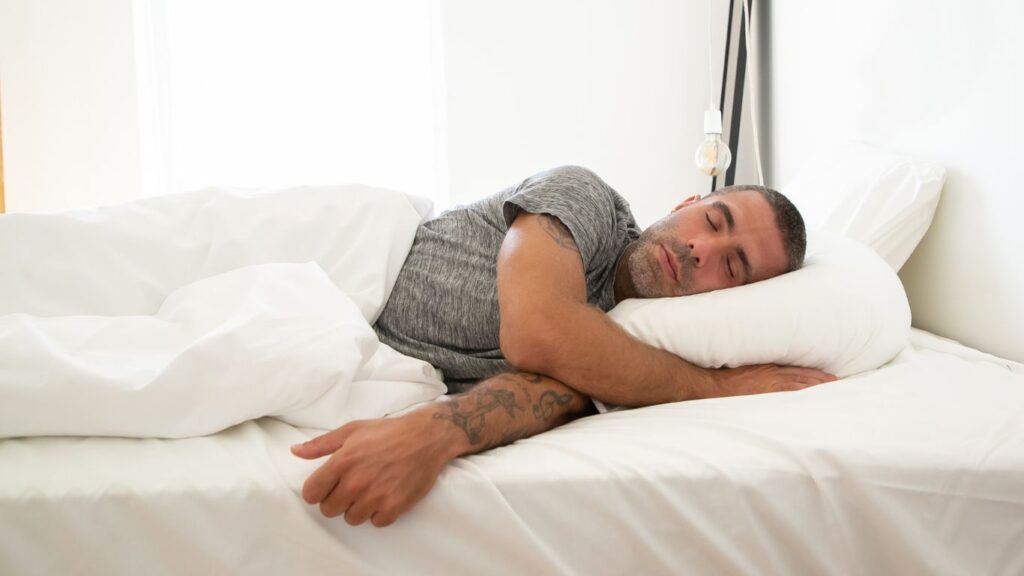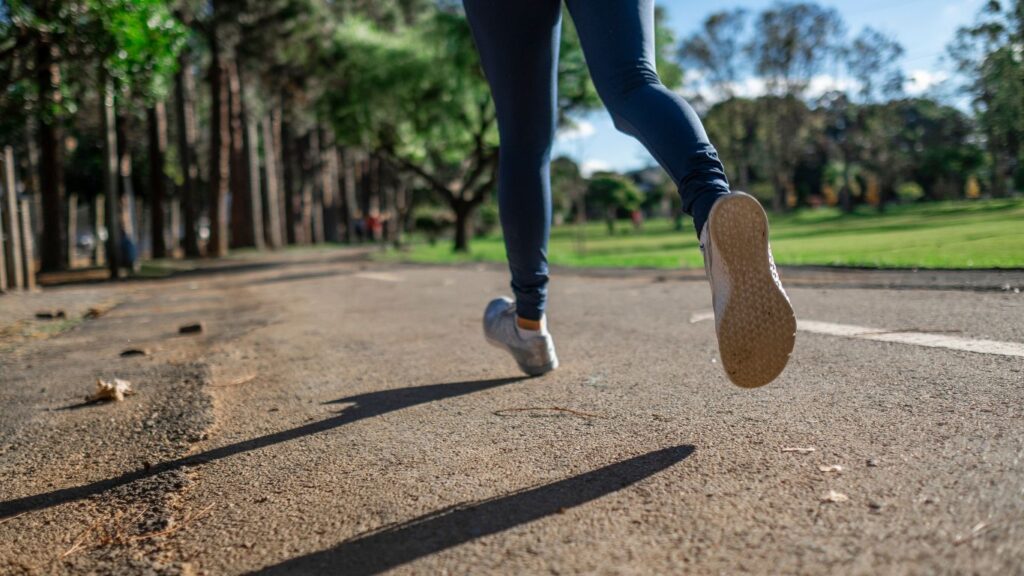Sleep is essential for physical and mental well-being, yet many people struggle to get enough restful sleep each night. While there are various solutions to improving sleep quality, one that stands out is regular exercise—particularly running. Running not only helps you stay fit and healthy, but it can also significantly improve your sleep quality. In this blog, we will explore how running positively affects your sleep and the surprising benefits it offers for a better night’s rest.
How Running Affects Your Sleep: The Surprising Benefits for Nighttime Rest
Running Helps You Fall Asleep Faster
One of the most immediate benefits of running is that it can help you fall asleep faster. The physical exertion during a run can deplete your body’s energy levels, making you feel naturally tired by the end of the day. When you engage in physical activities like running, your body temperature rises, and as it drops post-exercise, this cooling process signals to your body that it’s time to rest.
Additionally, running reduces stress and anxiety, two of the most common reasons people struggle to fall asleep. The release of endorphins, also known as the “feel-good” hormones, can put your mind at ease, helping you to relax and fall asleep more easily at night.
Enhances Sleep Quality

Not only does running help you fall asleep faster, but it also improves the quality of your sleep. Research shows that people who exercise regularly, including running, experience deeper and more restorative sleep cycles, particularly slow-wave sleep, also known as deep sleep. This stage of sleep is crucial for repairing and rebuilding tissues, supporting immune function, and promoting overall physical recovery.
By spending more time in deep sleep, you allow your body to heal and rejuvenate itself, leaving you feeling more refreshed and energized the next morning.
Increases Sleep Duration
Many people, due to hectic schedules, stress, or other factors, struggle to get enough sleep. Running can help extend the duration of your sleep by promoting physical tiredness and lowering stress levels. Regular runners tend to spend more time in bed and achieve longer periods of uninterrupted sleep, which is essential for feeling well-rested.
Incorporating a running routine into your daily life can increase your body’s need for sleep, encouraging you to stay in bed longer and achieve the 7-9 hours of sleep recommended for optimal health.
Regulates Your Sleep-Wake Cycle
Running can also regulate your circadian rhythm, the internal clock that dictates your sleep-wake cycle. Our bodies are naturally designed to feel alert during the day and sleepy at night, but factors like irregular sleep schedules, screen time before bed, or inconsistent exercise can disrupt this cycle.
Running, especially when done during the day, helps reinforce your body’s natural circadian rhythm. Morning or afternoon runs expose your body to natural light, helping your brain understand when it’s time to wake up and when it’s time to sleep. This can make it easier for you to fall asleep at night and wake up feeling refreshed in the morning.
Reduces Stress and Anxiety for Better Sleep

Stress and anxiety are two major sleep disruptors. Racing thoughts, restlessness, and an overactive mind can make it difficult to unwind at night. Running is a powerful stress-reliever that can help calm your mind, lower cortisol levels, and reduce the overall sense of anxiety. The release of endorphins during a run promotes feelings of happiness and relaxation, making it easier to leave the day’s worries behind when you hit the pillow.
By incorporating running into your daily or weekly routine, you can significantly reduce the mental roadblocks that hinder a good night’s sleep, such as stress and anxious thoughts.
Helps with Insomnia
For those who suffer from insomnia, running can offer a natural solution to improving sleep. Studies have shown that consistent aerobic exercise, including running, can reduce the severity of insomnia and help people achieve longer and better-quality sleep.
The physical activity helps balance your energy levels throughout the day, so by the time you reach the evening, your body is more ready for rest. It also reduces the arousal and hyperactivity that often accompany insomnia, promoting a sense of calm before bedtime.
Boosts Mental Health, Leading to Restful Sleep
The benefits of running extend beyond physical health—it can also significantly boost mental well-being, which in turn leads to better sleep. Running improves mood, reduces symptoms of depression, and provides mental clarity. People who run regularly often report feeling more balanced and emotionally stable, which is key to relaxing and achieving restful sleep.
Additionally, the act of running can serve as a form of meditation, allowing you to focus on your breath and release tension, both mentally and physically. This meditative aspect of running promotes mental calmness and prepares your mind for a peaceful night’s rest.
The Timing of Your Run Matters

While running has numerous benefits for sleep, the timing of your run can make a difference. Running in the morning or afternoon is generally more beneficial for sleep because it energizes you during the day and gives your body plenty of time to wind down before bed. Running too close to bedtime can leave you feeling too energized and disrupt your ability to fall asleep.
To maximize the sleep-enhancing benefits of running, aim for your run earlier in the day and give your body ample time to recover before heading to bed.
Conclusion
Running is an excellent tool for enhancing sleep quality, duration, and overall nighttime rest. Whether you’re struggling to fall asleep or want to experience deeper, more restorative sleep, incorporating regular running into your routine can help. With the added benefits of reduced stress, improved mood, and a regulated sleep-wake cycle, running can transform not only your fitness but also your sleep patterns. So, lace up those running shoes and get ready to experience the restful night’s sleep you’ve been dreaming of!
Also read: Running for Weight Loss: Tips to Maximize Your Results
